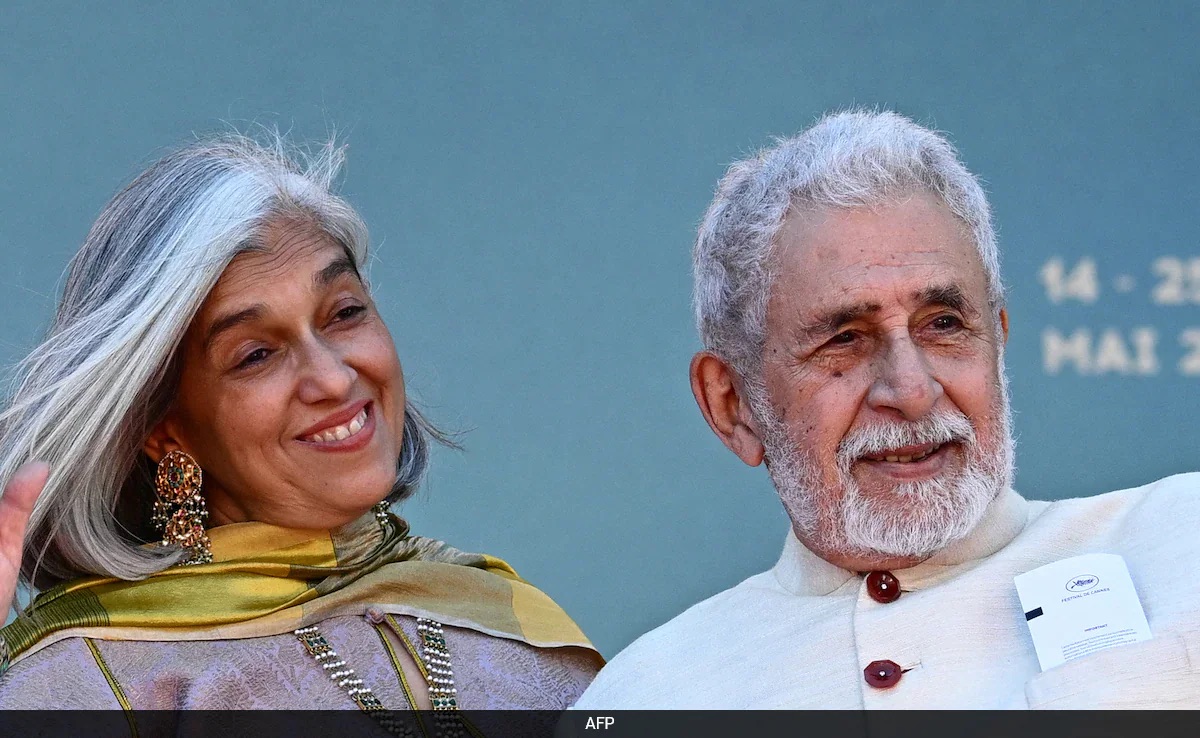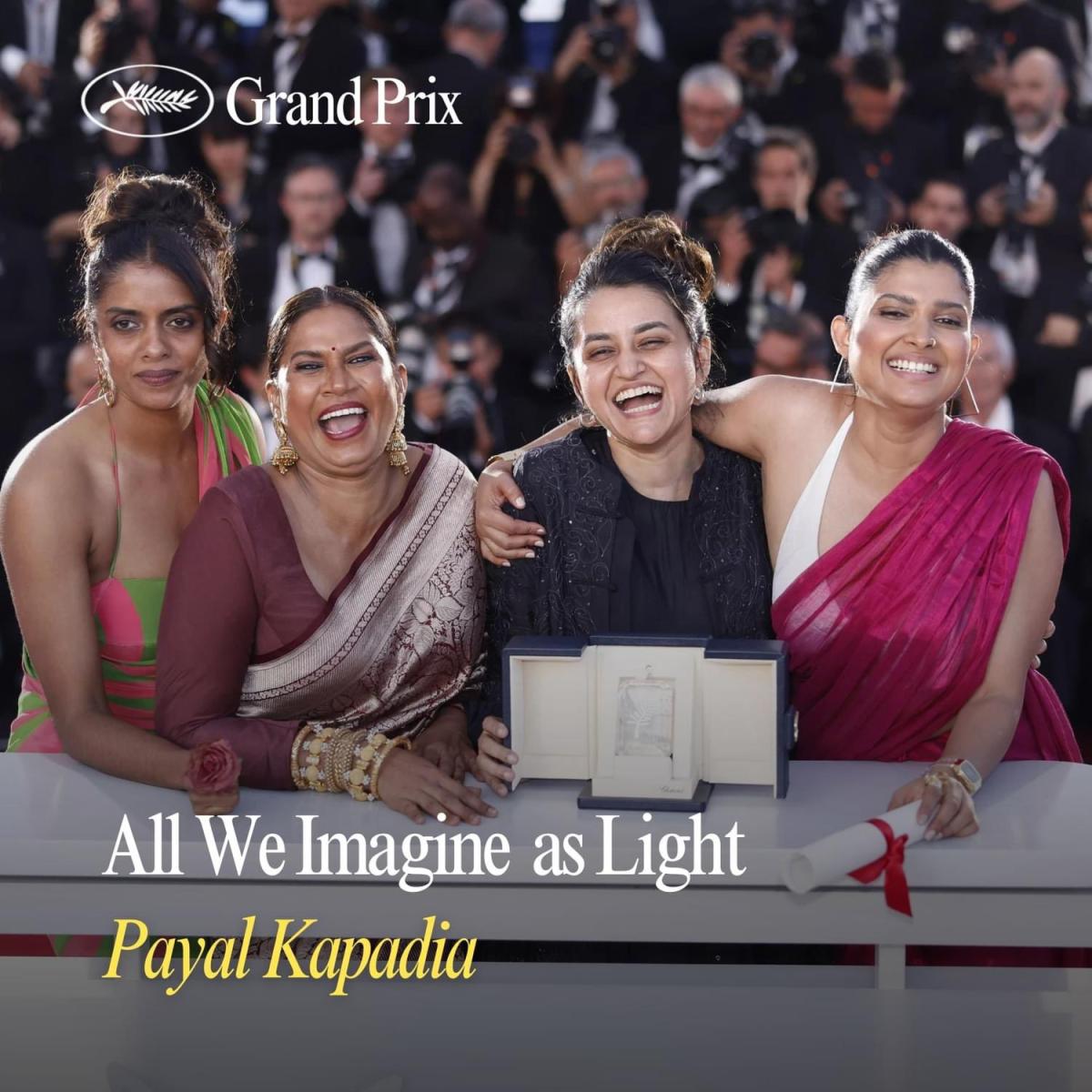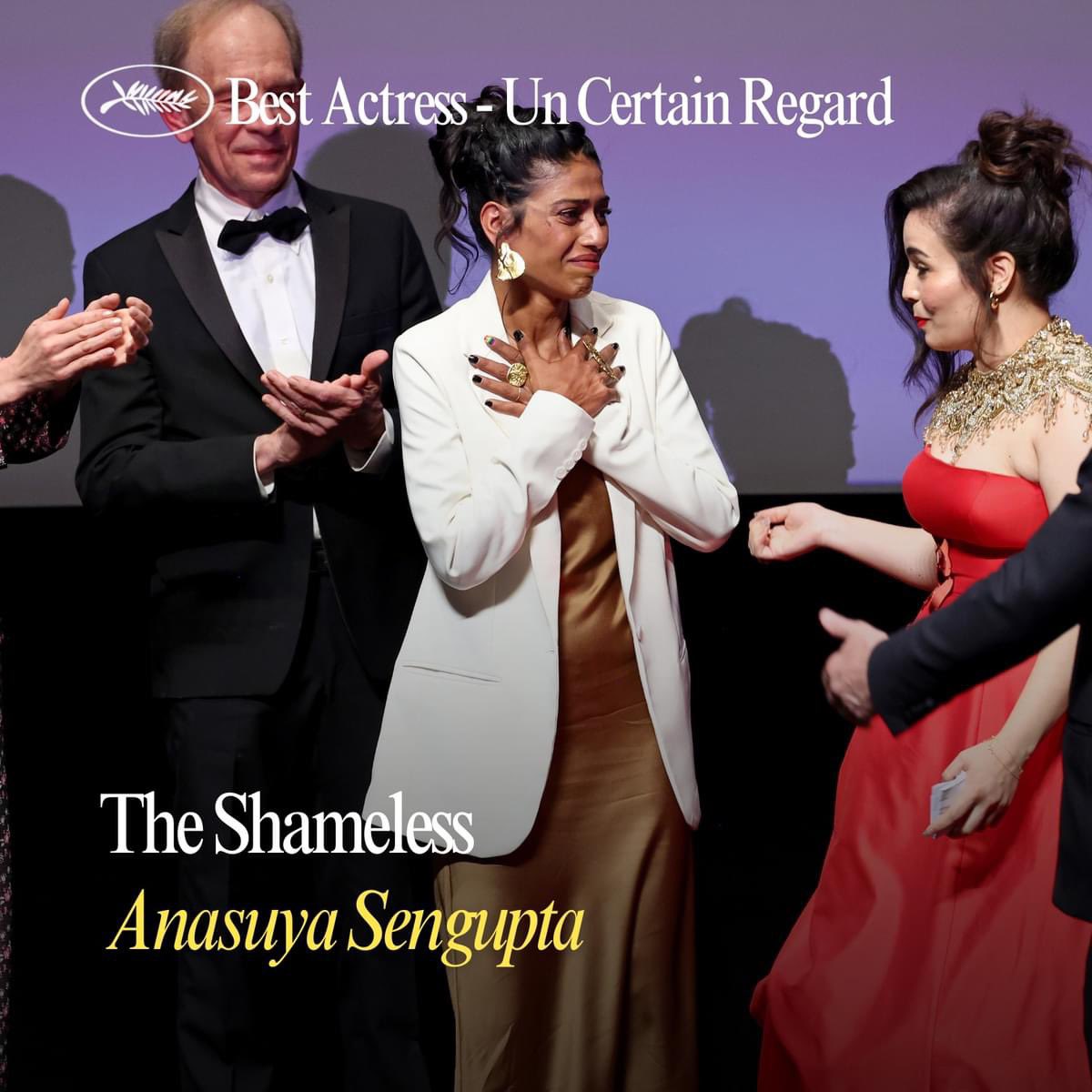Indian cinema shone in a thousand fires during the 77th edition of the Cannes Festival, which was held from May 14 to 25, 2024. This marked presence, both by the number of selected films and by the awards obtained, underlines an increasing and deserved recognition of the Indian film industry on the world. It is important to recall that India is the largest film producer in the world, and its ethnographic and cultural diversity enriches global cinema in a significant way.
This year, several Indian films have been selected in various festival sections, including one in official competition for the first time since 1994, and two in the Un Certain Regard section (To discover the whole Indian selection, click here). This diversified presence not only demonstrates the vitality of Indian cinema, but also its ability to explore a wide range of genres and themes, ranging from poetic fiction to poignant social dramas. And what is extraordinary is that many of these films have collected prices.
The flagship moment for Indian cinema in Cannes this year has been The Jury Grand Prix, awarded to All we imagine as light of Payal Kapadia. This distinction, the second highest of the festival after the Palme d’Or, is a historic first for an Indian film. The prize ceremony by American actress Viola Davis has added a touch of glamor and international recognition. All we imagine as light is a deeply poetic and introspective film that explores urban life in India through the dreams and aspirations of two roommates, Prabha and Anu. Prabha, a nurse in Mumbai, hides her interior torments by immersing herself in her work, while an AU, his young roommate, desperately seeks a place of freedom to express his desires. The film addresses themes such as emigration, precariousness and interreligious relations in a contemporary India in the grip of nationalist tensions. Payal Kapadia expressed his gratitude to the festival and urged not to wait 30 years before selecting another Indian film for such a distinction. His thank you speech was a moving call to a greater inclusion of Indian films in international festivals.
Anasuya Sengupta has registered his name in the history of the Cannes Festival in winning the prestigious prize for the best female interpretation for its role in The Shameless of Konstantin Bojanov, presented in the a certain look category. This victory is a historic moment, marking the first time that an Indian actress is awarded this honor to Cannes. The Shameless Immerses in contemporary India, exploring the complexities of love and identity through the history of two women working in the sex industry. Anasuya Sengupta embodies Renuka, a tormented woman looking desperately to escape the demons of her past. His performance, acclaimed for his power and her sensitivity, brings a vibrant humanity and a touching vulnerability to his character.
In The ShamelessRenuka escapes from a brothel of Delhi after tragically killed a police officer. She finds refuge in a community of sex workers in a small town in northern India, where she weaves a prohibited relationship with Devika, a young girl sentenced to a life of prostitution. The film offers a raw and uncompromising look at the brutal world of prostitution in India, exposing without detour the difficult realities facing these women, exploited by all, including the police. The pricing of their services, including the sale of virginity of young girls, is presented poignantly, stressing the glaring injustices that persist in this environment.
The first prize of the CINEF for the best short film was awarded to Sunflowers Were the First Ones to Know from Chidananda S. Naik. This tale, created by a doctor who has become a filmmaker, offers a poetic vision of Indian rural life. The short film, produced by the Institut du Film and Television de Pune (FTII), tells the story of an old woman who steals a rooster, plunging her village into perpetual darkness. Naik, from MySuru, drew from popular Kannada tales to create a work that combines humor and reflection on rural life in India. The third prize of the CINEF was also awarded to an Indian film, Bunnyhood by Mansi Maheshwari, stressing once again the quality and creativity of emerging Indian filmmakers. Bunnyhood is a short film that explores the themes of innocence and resilience through the eyes of a young boy in an Indian village.
Another significant moment for Indian cinema in Cannes this year has been the projection of Manthan (1976) by Shyam Benegal in the Classics Cannes section. Manthantells the social and economic struggles of Indian farmers in the context of the creation of a dairy cooperative. The film is a deep reflection on the dynamics of power and the class struggle in India. Actor Naseeruddin Shah, who had played in the film and who was present for the screening, expressed his emotion to be in Cannes after 50 years of career. He was particularly affected by the warm reception of the film by the French public, stressing the importance of seeing this film celebrated years after its creation: ” It is the first time in my life that I have come to Cannes, after 50 years of career in films that I hope good, but none of which had ever been selected in Cannes. Finally, I’m here. What marked me the most during the first? The fact that among the public, the proportion of Indians was very low, they were mainly French and other Westerners, and we received a wonderful reaction from them. There was an ovation that lasted a good time. I must admit that personally I was in tears by watching the film because there are so many memories associated with it. Watch this film, I would say, touched me more than the red carpet, and all these other things in Cannes. I am amazed at the passion for the cinema that exists here in Cannes. It is not a kind of any passion, but a curiosity for all types of films and there are films here of all kinds. For me, see Manthan was the most striking moment and to see him after so long and to think that he is celebrated on the very land of Georges Méliès, Abel Gance, Jacques Tati and geniuses like Jean-Luc Godard, it’s just incredible! I don’t think none of us thought that this film would be so successful, perhaps Shyam Benegal believed in it. At the time, the film had worked fairly well at the box office, surprising everyone. I was particularly delighted at that time because he offered more jobs. But I did not expect him to resist the test of time as he did. “
Shivendra Singh Dungarpur, director of the film Heritage Foundation (FHF), also shared his enthusiasm for the recognition of the film restored in Cannes: “ I think it’s a great moment for us. Because being in Cannes three years in a row is in itself a feat, and that speaks volumes about the quality of our work and the appreciation that we receive. Gérald Duchaussoy, the head of Cannes Classics, told me how beautiful the restoration was and how much the reaction of the public we obtained yesterday was positive. Among the feedback we had, people said the colors were so beautiful, almost Immaculate. And the most beautiful compliment for the FHF was when I showed the restoration in Shyam Benegal; He looked at her and was so delighted. He said: ‘This is how I imagined the film, which I had never been able to get because it was printed on a lower stock. And today the colors have returned, as they should be and as they should have been. ‘ It’s an incredible story, I know. This film is really part of our childhood. And the very fact that 500,000 farmers have produced the film and gave rupees to make it is really incredible!“”


Sister Midnight of Karan Kandhari, presented at the fortnight of filmmakers, also marked the spirits. This fantastic and daring comedy explores freedom and female autonomy in modern Indian society. The film tells the story of Uma, a bride who, stuck in an arranged marriage, turns into a disturbing figure and without moods, giving free rein to his ferocious impulses. The remarkable performance of Radhika Apt and the innovative approach of the director made this film a memorable work, although slightly breathless towards the end. Radhika Apte, known for her ability to play various roles, delivers here a striking performance that perfectly illustrates the complexity of her character.
Recognition of Indian cinema in Cannes this year is an encouraging sign for the future. The diversity and richness of the films presented show that Indian cinema has a lot to offer to the world scene. Hoping that this success inspires more Indian filmmakers to submit their works to international festivals and that these festivals continue to celebrate the diversity and wealth of world cinema. As Naseeruddin Shah pointed out, the passion for cinema transcends borders, and the Cannes festival remains a place of celebration for all forms of cinema. The reinforced presence of Indian cinema in Cannes this year could well pave the way for greater international recognition and increased participation in future editions of the Festival, as well as in other major cinema festivals around the world.
Neïla Driss












